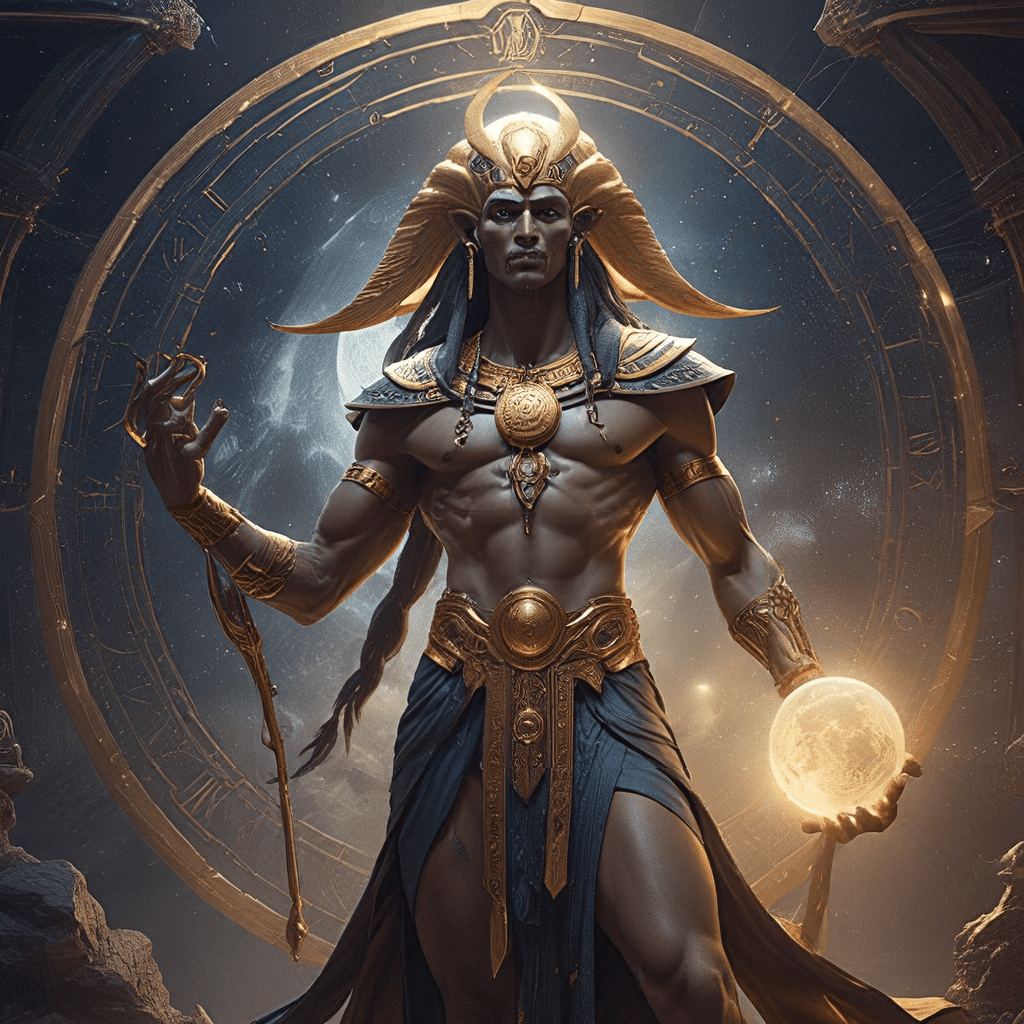The Moon God Thoth: The Keeper of Time and Knowledge
In the rich tapestry of ancient Egyptian mythology, Thoth stands as a figure of immense importance. Revered as the god of wisdom, knowledge, magic, writing, and the moon, Thoth played a pivotal role in the cosmos and the lives of the Egyptians. His influence extended across various domains, making him a multifaceted and revered deity.
1. Thoth: The Multifaceted Deity
Thoth was not merely a god of a single aspect, but a multifaceted entity who embodied the very essence of knowledge and its applications. He was the scribe of the gods, the inventor of writing, and the keeper of the sacred texts. As the god of time, he was responsible for the cycles of the moon and the stars. Thoth’s wisdom and knowledge were sought by both gods and mortals, making him a highly respected and influential figure in ancient Egyptian society.
2. The Role of Thoth in Creation
In the Egyptian creation myth, Thoth played a crucial role in the birth of the universe. He was said to have assisted the god Atum in bringing order out of chaos. Thoth used his magic to separate the earth from the sky, ultimately leading to the existence of the world as we know it. His contribution to creation cemented his position as a divine architect and a source of cosmic order.
3. Thoth as the Keeper of Knowledge and Wisdom
Thoth was the personification of knowledge and wisdom. He was believed to hold the key to all learning, including the secrets of the universe. The ancient Egyptians believed that Thoth’s wisdom was infinite, encompassing all subjects from mathematics and astronomy to religion and philosophy. He was often depicted holding a scroll or a palette, symbolizing his role as the keeper of written knowledge. Libraries and schools were dedicated to Thoth, emphasizing the importance of learning and intellectual pursuits in ancient Egypt.
4. Thoth: The Scribe of the Gods
As the scribe of the gods, Thoth was responsible for recording the divine decrees and pronouncements. He was the custodian of the divine order, ensuring that the cosmic balance was maintained. His role as the scribe also extended to the afterlife, where he weighed the hearts of the deceased against the feather of Ma’at, the goddess of truth and justice.
5. The Ibis and the Baboon: Manifestations of Thoth
Thoth was often depicted in the form of an ibis or a baboon. The ibis, a bird known for its intelligence and its ability to navigate by the stars, symbolized Thoth’s wisdom and his connection to the celestial realm. The baboon, with its ability to mimic human speech, represented Thoth’s mastery of language and writing. These animal forms served as visual reminders of Thoth’s multifaceted nature and his close relationship with the natural world.
6. Thoth and the Calendar
Thoth was also associated with the lunar calendar. As the god of the moon, he was responsible for its phases and its cyclical nature. The ancient Egyptians used the moon to track time, and they believed that Thoth regulated the lunar cycles. The 28 days of the lunar cycle were believed to be sacred to Thoth, and they served as a reminder of his influence over the passage of time.
7. The Role of Thoth in the Afterlife
In the afterlife, Thoth played a crucial role in the judgment of the deceased. He was responsible for recording the deeds of the departed and weighing their hearts against the feather of Ma’at. If the heart was found to be lighter than the feather, the deceased was allowed to enter the afterlife. However, if the heart was heavier, it was devoured by the monster Ammit, signifying eternal damnation. This role highlighted Thoth’s role as a judge and an arbiter of fate.
8. Thoth in Ancient Egyptian Art and Literature
Thoth is frequently depicted in ancient Egyptian art and literature. He is often shown as a human figure with the head of an ibis or a baboon, holding a staff and a scroll. His presence in art and literature served to remind the Egyptians of his importance and his enduring influence. The tales and myths surrounding Thoth were passed down through generations, ensuring that his legacy lived on.
9. Thoth and Magic
Thoth was also considered a master of magic. His knowledge of the universe and his ability to manipulate the forces of nature made him a powerful sorcerer. The Egyptians believed that Thoth could perform amazing feats of magic, including healing the sick, controlling the weather, and even bringing life to the dead. His magic was a testament to his divine power and his close connection to the cosmic forces.
10. Thoth’s Legacy: A God of Enduring Importance
Thoth’s legacy continues to resonate today. His importance as a god of knowledge, wisdom, and magic has left an enduring mark on the world. His influence can be seen in the development of writing, the understanding of the universe, and the pursuit of knowledge and learning. Even in the modern world, Thoth’s legacy serves as a reminder of the power of the mind and the importance of intellectual pursuits.




